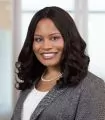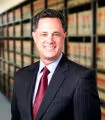As expected, the hearings on Judge Merrick Garland's nomination to serve as Attorney General provided more insights into Senators' views on antitrust enforcement than Judge Garland's. Nevertheless, there were certain exchanges that give some hints about what lies ahead in this arena.
Judge Garland's Background
Judge Garland—who practiced antitrust law at Arnold & Porter early in his career, has written on the subject, and even taught antitrust at Harvard—will bring significantly more antitrust experience and expertise to the role of AG than any of his predecessors. Indeed, he testified that antitrust was his "first love in law school." He also paid homage to two major antitrust scholars with whom he had studied and worked, Professor Phillip Areeda (who literally wrote the book) and Arnold & Porter's (and Georgetown's) Robert Pitofsky, the former chair of the Federal Trade Commission.
What Judge Garland Said
Although Judge Garland did his best (as expected) to avoided taking positions on pending antitrust cases or current hot issues, he did pledge to "vigorously enforce[e] the antitrust laws." He assured Senator Amy Klobuchar (D-MN) that he takes those laws "very seriously" and, quoting the Supreme Court, expressed his deeply held belief that "antitrust law [is] the charter of American economic liberty." Judge Garland declined, however, to comment on the specifics of the antitrust legislation Senator Klobuchar recently introduced. (To read more about the proposed legislation, see Arnold & Porter's Analysis of the Proposed Competition and Antitrust Law Enforcement Reform Act of 2021.)
Republican senators, expressing concern that significant campaign contributions from Google would lead the Biden administration to drop the DOJ's case against the company, pressed Judge Garland on his views. Judge Garland explained that, based on public materials he had reviewed, he did not see any reason why DOJ would change course. In any event, Judge Garland added: "I have no conflicts. I don't own any Google stock. And I will do whatever is the right thing." In other words, as in so many other areas, he reassured the senators that he would approach all such decisions with complete independence.
Both Democrats and Republicans sought Judge Garland's views on Section 230 of the Communications Decency Act, which immunizes online platforms for liability from claims based on content posted by their users. While the issue is only tangentially related to antitrust enforcement, Senator Marsha Blackburn (R-TN) characterized reforming "Section 230 liability protection for Big Tech" as another way "to hold Big Tech accountable." Judge Garland replied that he has had limited exposure to Section 230, as the only case involving the statute that has been on his docket required "a very straightforward application of the law." He did promise, however, that he would welcome the opportunity to speak with Judiciary Committee members to better understand the "conflicting concerns" about section 230, the statute's "complexities," and proposals for Section 230 reform.
Judge Garland specifically declined to identify President Biden's nominee as Assistant Attorney General to lead the DOJ's Antitrust Division, but he shot down press speculation that Susan Davies would be tapped for the role. At the same time, responding to Senator Josh Hawley's (R-MO) concern that a lawyer who has represented Facebook should not serve as AAG, Judge Garland observed that "a lot of the best antitrust lawyers in the country have some involvement one way or another in some part of Big Tech and we can't exclude every single good lawyer from being able to be in the Division."
Senator Klobuchar's Antitrust Priorities
Senator Klobuchar used the hearing as an opportunity to describe her view of the current state of antitrust enforcement. Her comments provide a glimpse of some of the pressures Judge Garland might face as AG. In particular, Senator Klobuchar noted that "two-thirds of the industries have become more concentrated between [19]97 and 2012" and that "the pandemic has made things even harder on small businesses." According to Senator Klobuchar, "the FTC and Antitrust Division of DOJ are literally shadows of what they were when the breakup of AT&T occurred." While both agencies have larger budgets and staff than they did in 1982, Senator Klobuchar clearly is concerned with what she perceives as lax enforcement. She urged Judge Garland to "take on the biggest companies the world has ever known" without relying on "band-aids and duct tape."
"Big Tech" Industry Concerns
Several committee members, including Senators Klobuchar, Blackburn, Hawley, Blumenthal (D-CT), and Cruz (R-TX), lobbied for the DOJ Antitrust Division to aggressively pursue specific cases. Senator Klobuchar, in particular, referenced the FTC's lawsuit against Facebook for its acquisitions of WhatsApp and Instagram, and she recommended that Judge Garland read the evidence in the case. She referred him to emails from Facebook CEO Mark Zuckerberg "where he talked about purchasing nascent competitors." Senator Klobuchar highlighted the need for the DOJ's involvement, stating that the reply to Zuckerberg's emails should "come from the Justice Department." She also sought Judge Garland's commitment to creating an economic environment of balanced capitalism that permits smaller competitors to emerge in the US marketplace.
Conclusion
Even though Judge Garland declined to comment on specific cases or proposed legislation, he is clearly committed to the DOJ's vigorous enforcement of the antitrust laws. In fact, when Senator Klobuchar asked whether he would want more resources for the Antitrust Division, his response was unequivocal: "Thank you; yes!" Let's see what he does with those resources once he's on board.
Originally Published by Arnold & Porter, March 2021
The content of this article is intended to provide a general guide to the subject matter. Specialist advice should be sought about your specific circumstances.

